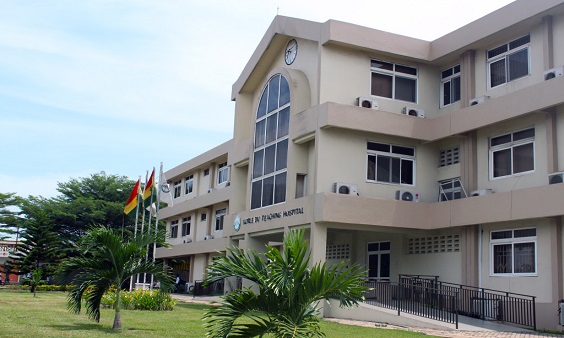The Korle-Bu Teaching Hospital (KBTH), has advised men to see qualified medical doctors when they have urinary problems for proper diagnosis and treatment.
Professor James Edward Mensah, Head, Department of Surgery, said this was important because the hospital was receiving more patients with advanced stages of prostate cancer, which in most cases left them on lifetime medication and at worse, loss of lives.
Prof Mensah, also the President, Ghana Association of Urological Surgeons, told the Ghana News Agency (GNA) in an interview as part of the Prostate Cancer Awareness month in Accra.
He said several prostate cancer cases that were referred to the KBTH came in their advanced stage and upon questioning some of the patients, they confirmed that they sought care early from herbal centres.
He said men who reported to the right facility early and are offered the appropriate diagnosis and medication, stood a higher chance of getting a cure.
Prostate cancer is a cancer that occurs in the prostate. Prostate is a small walnut-shaped gland in males that produces the seminal fluid that nourishes and transports sperm.
The disease in its early stage may cause no symptoms but in its advanced state one could experience trouble urinating, decreased force in the stream of urine, blood in the urine, blood in the semen, bone pain, loss of weight without trying and erectile dysfunction.
The disease only kills when the cancer has spread to other parts of the body.
Prof Mensah said that Prostate cancer was the second leading cause of male cancer deaths in Ghana and in KBTH alone, 20 men were diagnosed with the disease every week.
He said for men with a higher risk of getting prostate cancer, which included African men and men with a family history of the disease, they should talk to their doctors at age 40 and above.
This is necessary because such men may harbour the aggressive prostate cancer, which if not treated early would reach an advanced stage, he added.
The Urologist explained that due to the similarities in prostate cancer and prostate enlargement, most of the herbal centres treated patients for prostate enlargement when the patients are suffering from prostate cancer, saying, ‘this is the challenge we face.’
He noted that for a man to be diagnosed with prostate cancer, it was important to conduct a PSA blood test and biopsy to see where the cancer cells are, “but these herbal centres don’t do that; they just start treatment.”
“We know there are some doctors who are practicing herbal medicines but please first be a doctor, diagnose, do not start treatment before diagnosing.”
He challenged men to take control of their own health and ask questions about medications given them, read further on the drug when necessary to know what they are consuming.
A 66-year old man (name withheld) whose condition worsened and was almost paralyzed after visiting a prostate centre in Accra narrated his ordeal to the GNA.
He said, “I became aware of prostate cancer after my cousin died of the disease six years ago. So, I took it upon myself and visited a Prostate centre. Unfortunately, I was diagnosed with prostate enlargement and was given herbal medication to shrink it.
The man narrated to the GNA how for years he was taking the medications unending yet the enlarged prostate was not shrinking upon countless assurances, instead he started having difficulty in urinating and was given herbal tea to aid his urine flow.
He said, suddenly, I started having waist pain which became severe, pain in the lower abdomen, and was rushed to the Kaneshie Polyclinic.
He noted that after undergoing a series of tests, he was referred to a specialist and a Urologist at KBTH and his treatment commenced.
“I had my surgery last week Thursday but unfortunately I had reached the advanced stage so my case is to be managed and I will be on medication for life,” he stated.
The Prostate cancer survivor however, advised men not to believe the adverts they see on TV and hear on radio but visit the hospital for early diagnosis when they reach the said age.

